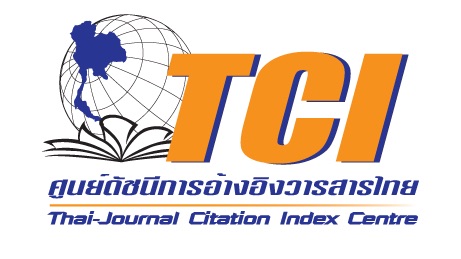Strategies of Translating Korean Sageuk (Historical) Series Titles from English to Thai
Keywords:
Translation strategies, Korean series titles, Sageuk, historical seriesAbstract
The translation of titles for Korean Sageuk (historical) series plays an important role in conveying their content and meaning, including values, culture, and distinctive features of the series, to a global audience. Accurate and contextually appropriate translations of these titles significantly impact the ability to attract viewers, especially when the titles align with the cultural context of the target language. For Thai viewers, translating the titles of Korean Sageuk series requires careful consideration of both linguistic and cultural differences to preserve the intended meaning while also appealing to Thai audiences. As a result, various translation strategies are employed to adapt these titles for different purposes, depending on the series’ content and the target audience.
This research aims to analyze the translation strategies used in rendering the titles of Korean Sageuk (historical) series from English into Thai. Data were collected from a list of series available on online media platforms from 2001 to October 2024, totaling 147 titles. The research instrument used was a translation strategy analysis table. The content validity of this table was assessed by three experts and found to be highly consistent. Descriptive statistics, including frequency and percentage, were used to analyze the data.
The findings revealed a total of 11 translation strategies used for translating Korean Sageuk series titles from English into Thai, ranked from most to least frequently used as follows: 1. Partial translation with additional Thai context 2. Renaming unrelated to the original title 3. Partial transliteration with additional Thai context 4. Partial transliteration, partial translation, and additional Thai context 5. Renaming using words that reflect the original meaning 6. Literal translation with additional Thai context 7. Complete transliteration with additional Thai context 8. Literal translation without additional Thai context 9. Partial transliteration, partial translation, and no additional Thai context 10. Partial translation with no additional Thai context 11. Partial transliteration with no additional Thai context
References
กรุณพร เชษฐพยัคฆ์. (2564). SAGEUK—KOREAN HISTORY THROUGH ENTERTAINMENT MEDIA ซีรีส์เกาหลีแนวประวัติศาสตร์ย้อนยุคที่เป็นมากกว่าสื่อบันเทิง. https://cont-reading.com/context/sageuk-kulture/
กาญจนา นาคสกุล. (2541). ระบบเสียงภาษาไทย (พิมพ์ครั้งที่ 4). โรงพิมพ์จุฬาลงกรณ์มหาวิทยาลัย.
ขนิษฐา สุวรรณประชา, มินตรา ไชยชนะ, และเบญญาภา ศักดาศรี. (2567). การวิเคราะห์กลวิธีการแปลชื่อภาพยนตร์ฮอลลีวูดจากภาษาอังกฤษเป็นภาษาไทยใน Netflix. วารสารทีทัศน์วัฒนธรรม, 23(1), 66 -89.
นิศารัตน์ โอทอง, ณัฏฐิกา บุญรัศมี, ศุภวิชญ์ ประสิทธิ์วณิช, และฮาริศ อาแว. (2566). กลวิธีการแปลชื่อภาพยนตร์ใน Netflix จากภาษาอังกฤษเป็นภาษาไทย. วารสารอักษราพิบูล, 4(1), 89-106.
รุจนี จีระกมล. (2565). กลวิธีการแปลชื่อละครเกาหลีบนเว็บไซต์เน็ตฟลิกซ์. วารสารมนุษยศาสตร์และสังคมศาสตร์ มหาวิทยาลัยอุบลราชธานี, 13(1), 135 -157.
รุสนี มะแซ, มูซัยนะห์ สาแม็ง, ซูรียาตี มานี, จิตสุดา ละอองผล, และวรเวทย์ พิสิษ ยศศิริ. (2561).การวิเคราะห์กลวิธีการแปลชื่อภาพยนตร์ฮอลลีวู้ดจากภาษาอังกฤษเป็นภาษาไทย. ในรายงานการประชุมหาดใหญ่วิชาการระดับชาติและนานาชาติครั้งที่ 9 (หน้า 111-118). มหาวิทยาลัยหาดใหญ่.
เลเดแรร์. (2540). การแปลคือการถ่ายทอดความหมายมิใช่การถ่ายภาษา. ใน นพพร ประชากุล (บรรณาธิการ), ศาสตร์การแปล: รวมบทความเชิงทฤษฎีและปฏิบัติ (จิระพรรษ์ บุณยเกียรติ,ผู้แปล,หน้า1-43). คณะศิลปศาสตร์ มหาวิทยาลัยธรรมศาสตร์.
Catford, J. C. (1965). A linguistic theory of translation. Oxford University Press.
Newmark, P. (2001). A textbook of translation. Shanghai Foreign Language Education Press.
Nida, E. (1982). The Theory and Practice of Translation. E. J. Brill.
Downloads
Published
How to Cite
Issue
Section
License
Copyright (c) 2025 Journal of Human and Society, Sisaket Rajabhat University

This work is licensed under a Creative Commons Attribution-NonCommercial-NoDerivatives 4.0 International License.







